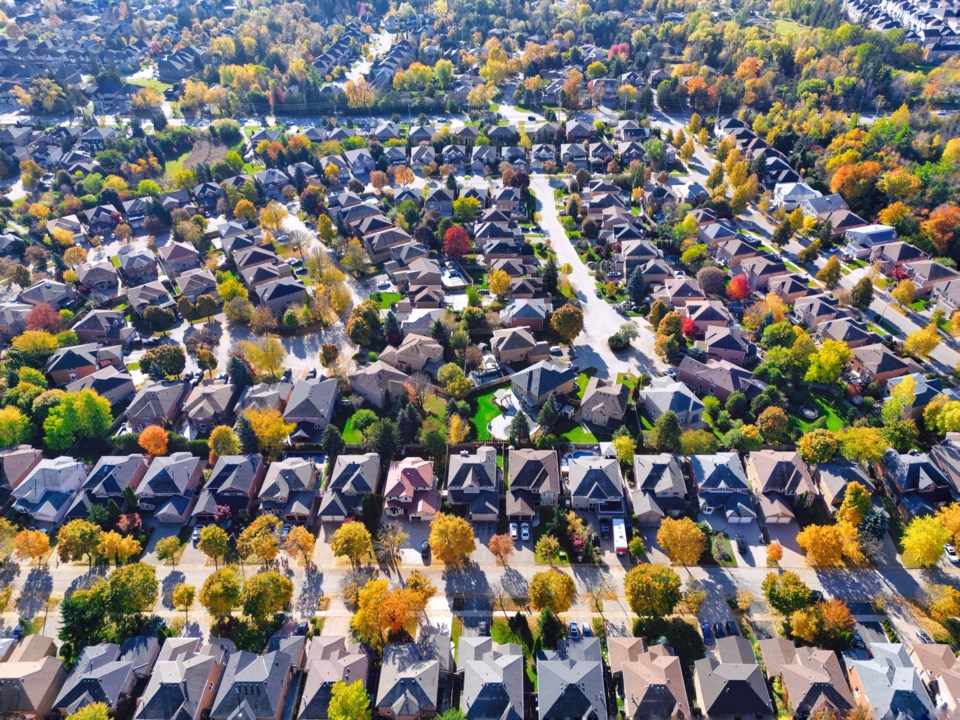Almost every neighbourhood has an old building that’s like an old friend, or beloved family member; it’s been there forever, everyone knows it, everyone has a story about it, and sometimes, like that cherished old loved one, it goes away. It’s sadder still when all you can do is sit there and watch it burn in some cosmic accident of fate.
This happens from time to time in all kinds of communities. There’s even a mourning period like a funeral as people share fond missives with each other, or with the press, or with their favourite social media platform. Everyone has a story about that building and then one day it’s gone.
It’s a story that repeats itself in every town and city where there’s some building, and usually more than one, that’s sat empty for years and left to slowly deteriorate while everyone tries and figures out something to do with it. But fire loves anything that’s big and empty and mostly made of wood and stone, and as the man said, “Nothing lasts forever…”
I’ve been thinking a lot about the trust gap when it comes to local housing, and how that tracks to the ones building the houses.
Developers are the one party in the process who are a proverbial black box. Unless it’s to their shareholders and investors they have no brief to be open to the public unlike activists and councillors whose business is explicitly in the public realm.
Having said that, I’ve been through a couple of municipal elections now and there’s more than enough suspicious mind left over for our elected representatives; some people assume that they’re wholly owned subsidiaries of local developers. Never mind that those same developers sometimes have to go around their supposedly bought and paid-for politicians to the Ontario Land Tribunal when they go rogue.
And it happened again.
GuelphToday reported this week that there are 16 different appeals to the new Comprehensive Zoning Bylaw that was passed at city council last month. One of those appealing is the Guelph and District Home Builders Association who sent out a press release to local media to let us know, and they even invited us to get in touch with their vice-president to talk about it.
Not for nothing, but I’m still waiting for our conversation.
Now in this business you realize pretty quick that not everyone you want to talk to wants to talk to you. And look, I make no bones that I have an agenda at times. I believe that journalism can be activism, but that doesn’t mean that I can’t be fair, and for a long time now I’ve wanted to scratch at that layer of doubt and contempt that covers the public appearance of our development community in some quarters. How do they see their role in this time of crisis?
And I can understand why developers feel like they do not need to stand up to the same kind of public scrutiny as government, they’re in housing to make a profit after all. But here’s the thing, they’re the only game in town when it comes to tackling the housing crisis.
Despite the myriad of changes made by the Ontario government in the last year, the vast majority have supported private development. There’s no mandate saying that any of the 18,000 units that Guelph must build in the next eight years have to be social or rent-geared-to-income housing, and the definition of affordable housing has been changed to mean 80 per cent of market value.
Eighty per cent of unaffordable is still unaffordable, and that’s to imply that everyone wants to take part in the open housing market. I’m sure some do, but I think most people just want the assurance that their rent isn’t going to jump 20 per cent from one month to another, or that they won’t be renovicted out into the cold because they complained to their landlord about accommodating their disability.
With no prerogative from some higher level of government to build real affordable housing, or more social housing, the onus is entirely on developers to solve the housing crisis, and their message to those of us looking for solutions is to mind our own business.
In terms of that Comprehensive Zoning Bylaw review, it was three years of work to replace something that hadn’t be updated in three decades, and I guaran-freakin’-tee you that Guelph’s biggest developers got more one-on-one staff time on that review than all members of the public combined. Now they’re going to get more alone time appealing at the OLT. When does the public get their facetime?
We know when, it’s never o’ clock. So the eyes of a skeptical public turn again to the wrong side of the door and are forced to fill the information void with the worst spectres of their own imaginations. It’s easy to think that a developer would rather burn down a building than work within the rules to save it, and it feels like they’re unwilling to tell us differently.
